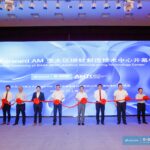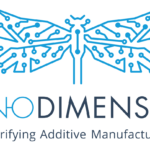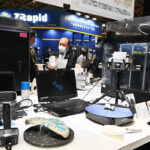ASIA ELECTRONICS INDUSTRYYOUR WINDOW TO SMART MANUFACTURING
Jabil Strengthens Additive Manufacturing Offerings
Jabil Inc. has launched PK 5000, an eco-friendly, powder-based additive material. It was engineered to deliver improved strength, chemical resistance, and resilience compared to general-purpose nylon materials, such as PA 12. This patent-pending material has been formulated to support highly demanding automotive, consumer electronics, defense, medical and industrial manufacturing applications.
“Our latest engineered material will disrupt the market for powder-bed fusion technologies by improving upon existing polymers to offer enhanced processing and performance properties,” said Matt Torosian, director, Product Management, Jabil Additive.
“With PK 5000, we are introducing new innovations to meet a broad range of customer requirements while accelerating the adoption of additive manufacturing.”
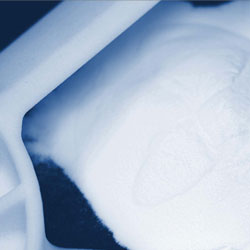
Material Innovations from Beaker to Box
The manufacturer created, tested and validated PK 5000 at Jabil’s Materials Innovation Center in Chaska, Minnesota. At the Center, polymer formulations, compound developments and material system integration are completed from start-to-finish under one roof. Highly experienced additive manufacturing engineers, chemists, materials scientists and production experts leverage Jabil’s innovations in materials science. They oversee each step of the beaker-to-box process of developing customized powders and filaments all under an ISO 9001-2015 quality management.
Passed Resilience Test
This newest material features a unique combination of chemical and mechanical properties. Specifically, they comprise high-impact strength, high-abrasion resistance and improved elongation over other nylon materials; thus enabling materials to withstand functional testing and use. Equally important, PK 5000 has high-barrier properties and low-moisture absorption. These features may be critical for ensuring the quality and resilience of certain parts and products exposed to fuel and water.
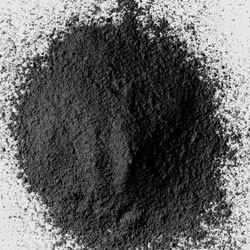
Moreover, the polyketone resin used to make PK 5000 is an eco-friendly, low-carbon material is made from carbon monoxide. The ability to leverage carbon monoxide, which is a leading cause of atmospheric pollution, may reduce overall carbon footprint.
EOS, Farsoon and 3D Systems are currently evaluating PK 5000 for their printer platforms. Jabil is developing process parameters for all major SLS platforms to ensure widespread access to PK 5000.
Expand Additive Manufacturing Capabilities
In addition to advancements in materials, Jabil continues to extend its global additive manufacturing platforms and solutions. This aims to complement its world-class manufacturing capabilities. Jabil has deployed hundreds of 3D printers -from desktop models to highly sophisticated industrial systems- to address a vast range of prototyping, tooling and volume-scale production demands.
Jabil has rapid tooling operations, additive manufacturing labs and tech centers in North America, Europe and Asia. They are augmented by AS9100-, ISO 13485- and ISO 9001-certified production centers for aerospace, healthcare and other rigorous applications. Jabil is well positioned to integrate the best of additive and traditional manufacturing to produce differentiated parts and products using innovative materials, proven Design for Additive Manufacturing (DfAM) principles, industry-leading manufacturing processes, as well as vendor-agnostic technologies and machines.

